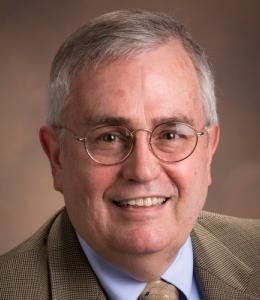At the funeral for one of Kentucky’s greater public servants in living memory, no speaker said a word about his service to the state.
Joe Wright, who was probably the most powerful member of a legislature he helped make independent from the governor, was remembered as a farmer and family man, always his top priorities. His life has lessons for us.
Three pews of the jam-packed Harned Methodist Church last Friday were reserved with drawings of a black sheep, recalling Wright’s role as a member of the “Black Sheep Squadron,” which ended governors’ domination of the legislature.

Taking on powerful Gov. Julian Carroll, who led the 1975 ticket on which they were elected, was an audacious move for a newly elected legislator whose only elective service had been school-board member, but Wright said years later, “I didn’t have any interest in being part of something that I didn’t think I could influence.”
Wright had a low profile as the Black Sheep took over the Senate in the 1979 special session, but was unanimously elected to the leadership that fall – at the same time Gov.-elect John Y. Brown Jr. wisely decided not to challenge the legislature’s newfound independence. When Black Sheep leader John Berry retired in 1981, Wright was elected majority floor leader and held the job for 11 years, longer than anyone before or since.
In that role, Wright was a key to convincing skeptics that the part-time legislature could be trusted to do the people’s business. The House also became independent, but had more turnover; under Wright and Senate President John “Eck” Rose, the Senate was the stabilizer – especially when Gov. Wallace Wilkinson tried to browbeat legislators into changing the state constitution so he could succeed himself.
In 1990, the legislature and Wilkinson struck a deal to pass the Kentucky Education Reform Act with a 1-cent sales-tax increase and give Wilkinson the bond issue he wanted to build roads. And in 1992, when then-Gov. Brereton Jones exempted himself from the succession amendment, the legislature and the voters passed it. The legislature also passed voluntary spending limits and public financing in governor’s races, and Wright’s support and steering were key to all these things. He was known for persuading colleagues while keeping their respect.
The floor leader’s job seemed to be Wright’s for as long as he wanted it, but he passed up re-election to the Senate in 1992, saying it took too much time from his family and his farm – ironically, he said, because of legislative independence. In his farewell speech, he endorsed the part-time, citizen legislature:
“I’m a farmer. ... Every true farmer’s goal is to leave the land a little better for my stewardship, a little more prepared to do the work of the good earth, a little more fertile for whoever follows. That is the covenant of farming. Just as there is a covenant of farming, there is a covenant of public service. And just as farming is more stewardship than ownership, so is public service. I do not own this seat. I’ve held it for a while.”
Wright told his colleagues that they would be judged “on the basis of how healthy, or how poor, is the soil of our democracy as symbolized by the health of this institution.” But he also had to acknowledge that a bribery scandal had hit the legislature that month: “With legislative independence has come explosive growth in the attention this body receives from special interests.”
(At the funeral, there was one public mention of politics, from granddaughter Elena Wright, who said she asked “Pappy” about his political career and he told her about his 1996 race for Congress, a quixotic effort surely spurred by a close ally, then-U.S. Sen. Wendell Ford. She quoted her Pappy as saying, “I was upset for about six hours, but after that, it was over.” Wright wanted to run for governor in 1995, but couldn’t find the running mate he wanted – a requirement of the 1992 amendment, another irony.)
Less than a decade after Wright left Frankfort, the General Assembly persuaded voters to let it meet every year, making it less of a citizen legislature. And though the partisan shift in recent years has brought more turnover in membership, too much legislating seems aimed at keeping individuals and their parties in power.
In 50 years of watching politics, I’ve liked to believe that most people enter it for the right reasons: to help their community, to further a worthy cause, to give back to a society that has been good to them. But once elected, too many stay in politics for the wrong reasons, selfish ones, mainly staying in office. They should be willing to do the right thing and walk away, as Joe Wright did.
--30--








